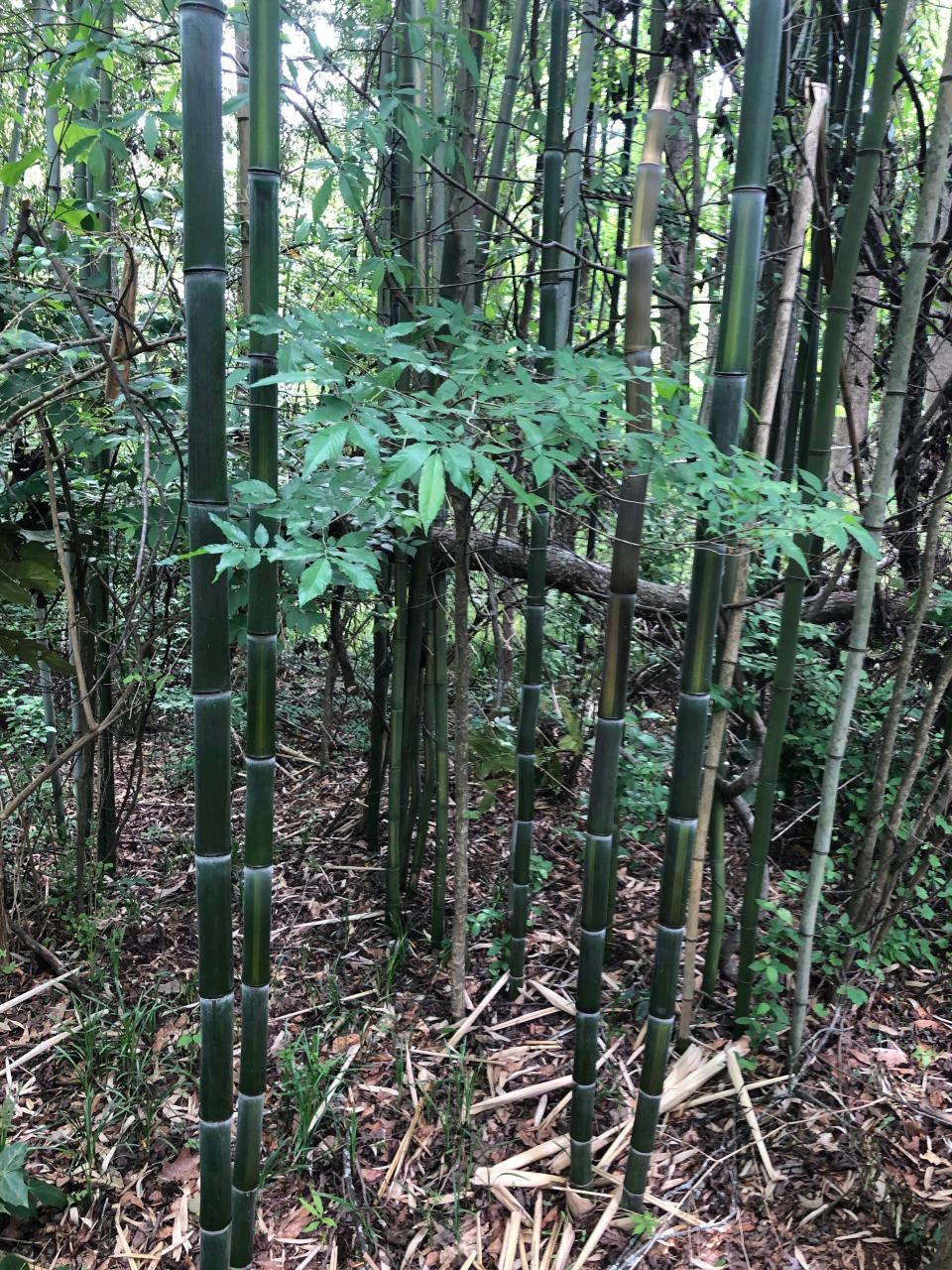Athens Commission looks to stop the spread of invasive plant species with ordinance update
Athens-Clarke County commissioners are poised to adopt sweeping changes to the county ordinance dealing with controlling the spread of invasive plant species.
Most notably, the proposed code amendments, set for a final vote at the commission’s May 7 meeting, provide precise detail regarding what the local government considers to be invasive plants.
Regarding control of invasive plants, the amendments require owners to keep invasive species from spreading into adjoining private property or public rights of way. The amendments also provide that any property owner who pursues removal of an invasive species from their property can’t be considered an invasive plant owner.

If enacted, the code amendments would be enforced by complaint only, meaning that code enforcement officers wouldn’t actively look for violations. Instead, they would respond if someone complained about a location where invasive species are located.
Currently, the county code dealing with vegetation control addresses only a handful of turf grasses and weeds, requiring only that they be kept at 10 inches or less in height by the property owner.
The amendments vastly expand the county’s current definition of invasive vegetation, relying -- except for turf grasses -- on parts of the Georgia Invasive Species Council’s Invasive Plant List from the University of Georgia Center for Invasive Species and Ecosystem Health.
The county code, if amended as proposed, would place a long list of the most invasive vegetation on the local listing. Among the vegetation that would be specifically covered under the amended ordinance are kudzu, golden bamboo, Bradford pear trees, mimosa, English ivy, and Chinese wisteria.
Many plants outside the Invasive Plant List parts included by reference in the proposed ordinance amendments are mentioned specifically in those amendments. The specifically denoted vegetation is winter creeper, leatherleaf mahonia, Chinese basil, cherry laurel, and Chinese elm.
Across much of Athens-Clarke County, bamboo has been a particular problem as an invasive species, and since it isn’t currently listed specifically in the ordinance, controlling its spread has been a vexing issue.
More: Athens mayor's emails in wake of Laken Riley death released
During public comment at a recent meeting, a Milledge Terrace resident told commissioners that because bamboo is not specifically identified in the current ordinance, its spread has become a serious problem in her neighborhood.
“Without the ability to use our current county code of ordinances, the issue (of bamboo proliferation), has continued to progress over the last several years,” the woman told commissioners. In her neighborhood, she said, spreading bamboo has begun to affect the integrity of fences and structures.
If bamboo is left unchecked, the speaker continued, property owners in the affected area will have to “resort to drastic measures, such as digging 3- to 4-foot trenches around their property, utilizing dirt exchanges, and pouring cement, which still may not be sufficient to prevent the spread of bamboo.”
The proposed ordinance amendments are on the “consent agenda” for the May 7 commission meeting, signaling they will be passed with other items on the agenda with a single vote.
At least one elected county official is particularly familiar with invasive species. At the April 16 meeting, Mayor Kelly Girtz said, “I moved into a home on Pulaski Street 25 years ago that featured privet, bamboo, kudzu, and English ivy … so, this is real.”
Girtz went on to say that he has been able in the intervening years to get three of the four invasive species out of his yard.
If the amendments are approved at the commission’s May 7 meeting, they would not affect conditions existing prior to official enactment of the ordinance changes. That means any property owner whose invasive plants have already spread to another property would continue to be subject only to the current ordinance.
This article originally appeared on Augusta Chronicle: Bamboo, others targeted for list of invasive plants in Athens

